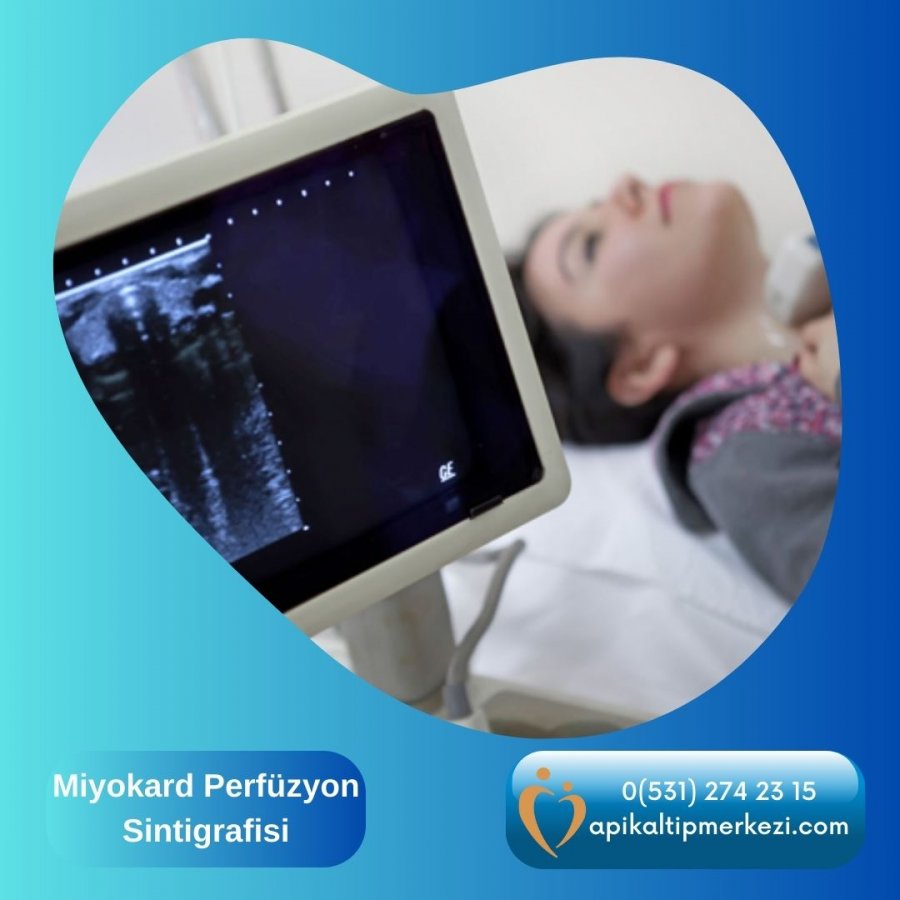Myocardial Perfusion Scintigraphy
Simply put, it is an imaging procedure that assesses the
amount of blood reaching the heart muscle to determine whether a person has
coronary artery disease (CAD).
How is it performed?
A radioactive drug containing a low amount of radiation for the film will be
injected intravenously at the end of a stress test (exercise or
pharmacological). The radioactive drug travels through the bloodstream to the
coronary arteries and from there to the heart muscle. A special camera will
then take images of how the radioactive material is distributed in your heart.
The images are edited and evaluated by a computer. The amount of radioactive
drug increases or decreases in direct proportion to the amount of blood flowing
to the heart muscle. Thus, the heart muscle supplied by the coronary arteries
is visualized and information about stenosis or blockages in the coronary
arteries is obtained.
Exercise stress test
CAD can sometimes only be detected when the heart is under stress and needs
more blood. For this reason, the MPS study is usually performed in two studies:
resting and post-stress. Exercise to put stress on the heart can be done on a
treadmill or a bicycle. Exercise makes your heart work harder and increases its
demand for blood, helping to detect the presence of blockages and narrowing.
Pharmacological stress test
It is performed in patients who cannot exercise enough for some physical
reasons (e.g. orthopedic problems). A medicine given intravenously creates a
state of stress on your heart similar to an exercise test. This medicine does
not contain radioactivity. The images obtained after the stress test are
compared with the resting images. Myocardial perfusion scintigraphy can provide
your doctor with the following information about your condition
Whether you have CAD and if so, how serious it is,
Your risk of having a heart attack (infarction),
Whether you need other tests or treatment for CAD.
Is myocardial perfusion scintigraphy a
safe procedure?
Like many people, you may be worried about the radiation you may be exposed
to from this test. However, you can relax about this. This is because the total
amount of radiation your body will be exposed to as a result of this test will
be no more than a typical X-ray. The radioactive drug administered will
physically lose its radioactive properties in a short period of time and will
be rapidly eliminated from your body naturally.
What should you pay attention to before myocardial perfusion scintigraphy?
Unless otherwise instructed, do not eat or drink for at least 4 hours
before your appointment.
If you are taking medications for heart disease, hypertension, diabetes and
similar reasons, do not take these medications for the period to be notified to
you (on average 2 days in advance) unless otherwise stated.
On the day of the procedure, come to the hospital rested and wearing
comfortable clothes and shoes.
If a pharmacologic stress test is to be performed, stop the use of foods such
as tea, coffee and chocolate a few days in advance.
If available, bring a summary of your condition - epicrisis reports or
previous test results with you.
Myocardial perfusion scintigraphy is an imaging method that has been used
for more than 20 years, does not involve any serious risk to the patient and
has been repeatedly proven to be reliable.

